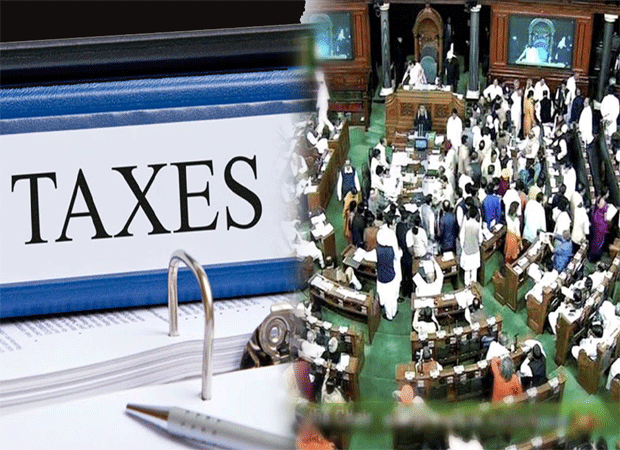TRENDING TAGS :
Rajya Sabha passes GST bill with thumping majority
 Arnima Dwivedi
Arnima Dwivedi
Lucknow: Rajya Sabha on Wednesday clears way for the Goods and Service Tax (GST) bill, hence paving way for doing the business with 'ease' in the country.
The bill which has been already passed by the Lok Sabha has gone through almost a decade of debates and oppositions finally saw the light of the day.
Some market analysts said the government's plan of uniform tax regime may affect the federal system of the government while others denied the aspect saying that GST only proposes amendment in the value of tax being paid and does not disallow the state government to generate revenue from that amount.
The bill was mainly opposed by the Congress on two grounds: inclusion of capping in the amendment to the constitution and additional levy of one per cent by manufacturing states.
The party, however, confirmed its support after the central government made these changes in the proposal.
Amid all such ‘ifs and buts’ what makes GST an important tax reform is that ‘it simplifies the tax structure, increases tax compliance, increases government revenue and integrates states’.
What is a Goods and Service Tax (GST) Bill:
- The GST bill, officially known as ‘The Constitution (One Hundred and Twenty-Second Amendment) Bill, 2014’, proposes a Uniform tax regime to be implemented in India. There will be uniform 18 per cent tax throughout the country if the amendment is finally made.
- The government has proposed the plan ion three parts, namely ,the Central GST that will include all the taxes that countrymen pay to the Central government (for example: Excise duty), State GST that includes all the taxes that are imposed by the state government (such as royalty of Coal mines) and Integrated GST which will include all payable taxes that are proportionately distributed between the Centre and the state governments.
- According to the bill presented by government in Lok Sabha, the new amendment will free the nation from unnecessary twenty-odd types of taxes and will replace them with a single tax system that would mitigate cascading or double taxation and facilitate a common national market.
Central taxes That The GST will replace:
- Central Excise Duty
- Duties of Excise (medicinal and toilet preparations)
- Additional Duties of Excise (goods of special importance)
- Additional Duties of Excise (textiles and textile products)
- Additional Duties of Customs (commonly known as CVD)
- Special Additional Duty of Customs (SAD)
- Service Tax
- Cesses and surcharges in so far as they relate to supply of goods or services
State taxes that The GST will subsume:
- State VAT
- Central Sales Tax
- Purchase Tax
- Luxury Tax
- Entry Tax (all forms)
- Entertainment Tax (not levied by local bodies)
- Taxes on advertisement
- Taxes on lotteries, betting and gambling
- State cesses and surcharges
Also Read: GST: Narendra Modi proposes, Sonia Gandhi disposes
The GST Council:
- The council will be consisted of the Union Finance Minister who will be the chairman, Minister of State of Revenue, Minister in charge of Finance or Taxation or any other Minister, nominated by each state.
- The decisions will be made by three-fourths majority of votes cast in which Centre shall have a third of votes cast, states shall together have two-third.
- Mechanism for the disputes aroused out of its recommendations may be decided by the Council itself.
The levy of GST:
- The bill that has been presented in Lok Sabha clearly state that both Parliament, state Houses will have the power to make laws on the taxation of goods and services but the Prliament’s Law will not override a state law on GST.
- The Integrated GST (IGST) will provide the central government with an exclusive power to levy, collect the general sales tax in the course of interstate trade or commerce and imports.
- The integrated GST will be shared among the Centre and State according to the manner prescribed by the central law based on GST Council’s views.
Who will benefit and how:
The general impact of GST is termed as positive. Analysts say that after the bill is passed, a manufacturer knows he will get the raw materials without any additional tax and will have to bear the same excise duty all over the country and a household knows that they do not have to pay different indirect taxes to the government.
So, less burden, happy taxpayers and wealthy government will result in a fast growing developed economy.
You may also read: Almost all states are virtually ready for GST Bill: Jaitley



